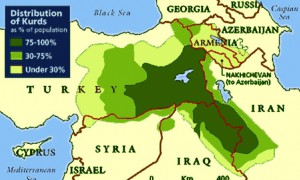
After running for President in 2008 on a platform that criticized Iraq as a “dumb war,” Barack Obama just declared America’s misbegotten Iraqi adventure to be an “extraordinary achievement” in a speech to soldiers at Fort Bragg. That declaration of success is not enough for Congressman Duncan Hunter, who took Obama to task, saying, “And even now, as president, he refuses to acknowledge that victory was achieved,”
Such is the self-referencing nonsense produced in contemporary American political discourse shaped by a perpetual election cycle that disconnects debate from the real world and stifles rational governance, but keeps the masses entertained and distracted, much like the circuses did for the Roman masses in the waning days of the Empire. With American politicians are arguing endlessly how great a victory we achieved in Iraq, a natural question remains unasked: What does the rest of the world — particularly the Arab world — thinks of our ‘success'?
Attached, FYI, are two thoughtful alternative points of view on this question.
The first headline is from Rami Khouri's. He is a columnist for the Lebanese Daily Star and is syndicated by the prestigious Agence-Global. The second headline is from Patrick Cockburn's, writing in the Independent [UK]. He is one of the most well informed western reporters now writing about the Middle East.
Praise Tunisia, not the Iraqi nightmare
By Rami G. Khouri, Daily Star, 14 December 2012
The United States under President George W. Bush drew on a deep well of nonsense, lies and fantasy when it entered Iraq in 2003. President Barack Obama continued this bipartisan American tradition when he said Monday that the departure of American forces from Iraq left behind a country that can be a model for other aspiring democracies. On the other side of the Arab world on the same day, the Tunisian people elected a new president, providing a more credible example of how Arabs can aspire to become democratic without foreign armies destroying their national fabric. Read more.
Wars without victory equal an America without influence
Phi Beta Iota: Mr. Cockburn's article contains one major assumption, to wit that the US Government will not attack Iran nor condone an Israeli attack on Iran. We disagree. Now more than ever, Israel is bent on attacking Iran and drawing the US in–the deployment of US/NATO troops all around Syria, the plans for major NATO air operations ostensibly against Syria (long billed, falsely, as an Iranian puppet state) all point to precisely the opposite: a cresendo joint US-Israel mega-attack on Iran and Syria together.






